Open University: Photos issued to mark 50th anniversary
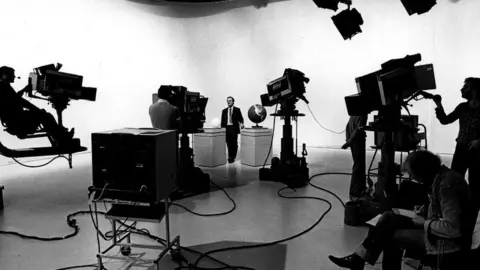 The Open University
The Open University The Open University, the UK's largest educational institution, is celebrating its 50th anniversary.
It was set up to bring degree-level learning to people who had not had the chance to go to a traditional campus, and pioneered long-distance study.
The university teamed up with the BBC to produce course programmes, famously shown late at night for many years.
Photos released to mark the occasion show the early days and tell the story of some of its current students.
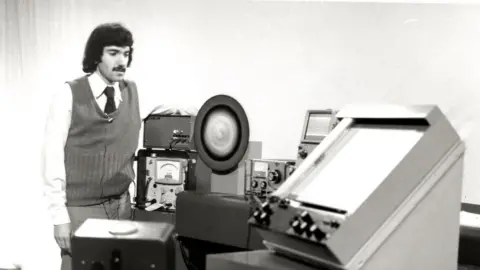 The Open University.
The Open University.The Open University (OU) has taught more than two million students since it was granted a royal charter on 23 April 1969.
Lectures were first broadcast on 3 January 1971 on BBC Two, and course materials - including entire science experiment kits and even the brains of sheep - were sent through the post.
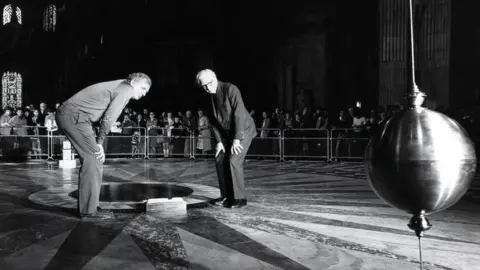 The Open University
The Open University One programme, shown in 1979, featured the famous Foucault experiment, which proved the earth rotates, by hanging a brass ball from the roof of St Paul's Cathedral in London.
The final OU programme was broadcast in 2006, by which time most of its content had moved to DVD and the internet.
More than 40 clips and full programmes from the past 50 years are available to view on the university's digital archive.
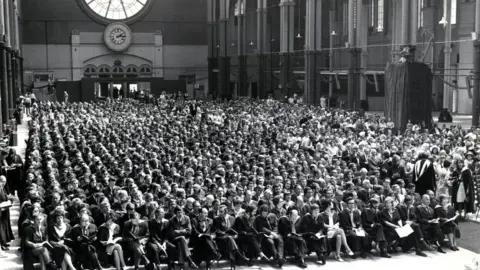 The Open University
The Open University The Open University came about under Prime Minister Harold Wilson, who said he had been working on the idea before becoming leader of the Labour Party in 1963.
The first degree ceremony was held at Alexandra Palace in London 10 years later, on 23 June 1973.
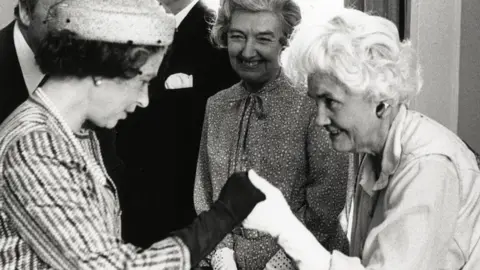 The Open University
The Open University Wilson's arts minister Jennie Lee was instrumental in setting up the OU, and met the Queen on campus in Milton Keynes in 1979.
The new town was just two years old when the university was created and was chosen as its main headquarters because it had ample space and was relatively close to London.
The university has almost 175,000 current students, including more than 7,000 overseas.
Tracy Thorpe, 51, studied for her modern languages degree while working as a professional crew on yachts.
She features in a new set of photos by photographer Chris Floyd to mark the university's 50th anniversary.
 The Open University, Chris Floyd
The Open University, Chris Floyd  The Open University, Chris Floyd
The Open University, Chris Floyd 